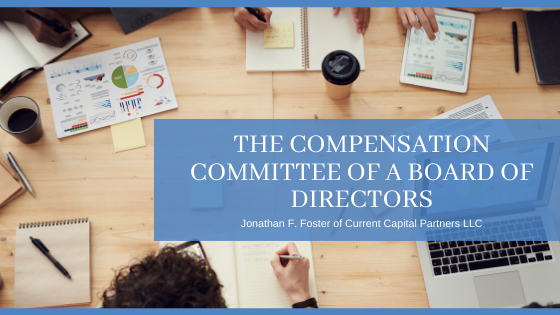Oversight of management is one of the board of director’s primary responsibilities. This includes hiring, monitoring, evaluating, and compensating the senior team. Most boards establish a compensation committee to be responsible for this important topic. Often, the committee retains an independent compensation consulting firm for advice.
While avoiding conflicts of interest is essential for directors, it is especially important for the compensation committee members given that they drive the determination of salaries, bonuses, and equity awards for a company’s leaders. Both the New York Stock Exchange (NYSE) and NASDAQ have set independence standards. In general, directors are considered independent if they are free of any relationships related to the company they oversee, save for stock ownership and directorship. Directors can be disqualified from serving on a compensation committee due to legal, accounting, familial, and commercial relationships.
Any company subject to NYSE listing standards must establish a compensation committee as part of its board. The NYSE also mandates a published charter and specifies some basic requirements for such a committee. These include the review and approval of a company’s goals and the CEO’s (AND other executives’) success in carrying out these goals. This evaluation provides the basis for executive compensation. The charter drives the activities of the committee and sets standards for compensation and reporting.
NASDAQ’s listing standards developed in response to Dodd-Frank requirements that all NASDAQ companies have a compensation committee consisting of at least two independent directors. Like NYSE standards, NASDAQ requires the creation of a formal charter. However, under NASDAQ, CEOs are prohibited from attending meetings where the committee discusses their compensation.
In addition to conducting the evaluation necessary to determine executive compensation, the compensation committee is expected to have a compensation philosophy. This is based on the company’s business objectives and helps determine the evaluation criteria, as mentioned above. Compensation committees are also required to report on their analysis of executive compensation annually, including notes on the rationale for their decisions.
The NYSE and NASDAQ permit the hiring of a compensation consultant in carrying out the committee’s responsibilities. In these cases, advisers are subject to similar standards of independence as committee members. These standards include other services an adviser may render to a company, stock owned by the adviser, and personal relationships with the compensation committee.
A critical responsibility for the compensation committee is to facilitate say-on-pay (SOP) voting, which is required at least every six years and has been since 2011. SOP votes allow shareholders to vote on executive compensation. Such votes are advisory or not binding. However, a positive SOP vote of less than about 90% is indicative of shareholder concerns. Shareholders are also given a chance to provide input on how often such votes occur. Companies are required by the SEC to disclose compensation information as well as the vote results.
Given the sensitivity of determining compensation, compensation committees are regarded with particular scrutiny. Both the NYSE and NASDAQ have set similar listing standards to ensure objectivity when it comes to determining the pay of top executives. The philosophy set by a compensation committee should be the strategic guide for compensation decisions.
Jonathan F. Foster
Founder & Managing Director – Current Capital Partners LLC

